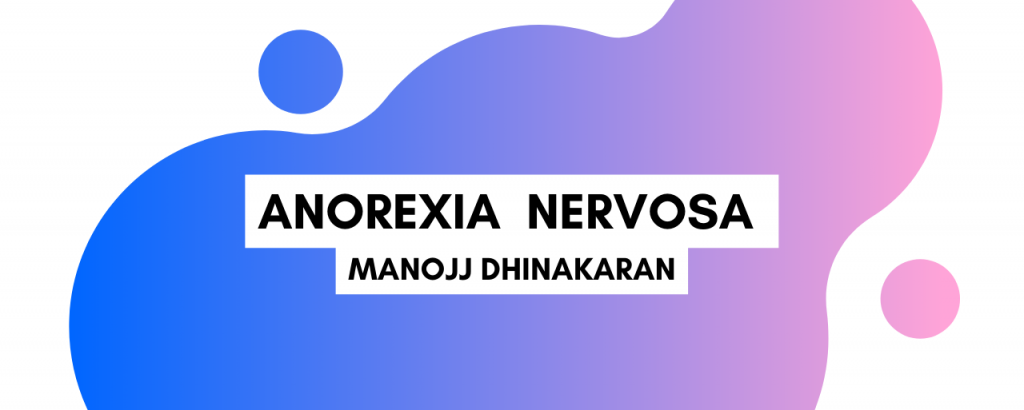Attention This post is NOT meant for self-diagnosis nor is it an exhaustive list, this is just to give you an idea about the condition. If you find yourself experiencing any of the symptoms or signs, please refer yourself to a physician for a complete diagnosis that involves comprehensive tests and lab reports. Thank you. […]

This post is NOT meant for self-diagnosis nor is it an exhaustive list, this is just to give you an idea about the condition. If you find yourself experiencing any of the symptoms or signs, please refer yourself to a physician for a complete diagnosis that involves comprehensive tests and lab reports. Thank you.
Anorexia Nervosa is an eating disorder that is often defined by the abnormal loss of body weight or the inability to maintain a healthy one, in fear of gaining weight that forces a person to place restrictions on eating and exercise excessively. Though aversion to weight is common, in the case of anorexia the fear becomes an obsession. It is a serious condition that when left untreated may cause serious health issues, and in a few cases, even death.
Till date, no research pinpoints a single reason to be the cause, but a group of factors that may facilitate the development of the condition. This includes,
Some of the signs of having the disorder include the inability to maintain a healthy weight based on BMI, lack of sleep, disinterest in eating or eating restrictively, and dry skin with yellow or blotchy skin. The DSM-5 diagnostic criteria include
All these conditions are meant to be observed for at least a considerable time persistently. If so, please get medical help immediately.
Loss of essential nutrients due to restricted eating may lead to organ damage and electrolyte imbalances. Medical complications of the condition include heart, liver and kidney failure. Anaemia, low blood sugar and osteoporosis is also seen.
Anorexia is not a condition to panic or feel ashamed about. It is easily treatable with the help of a professional. This is seen throughout the world, especially in developed countries. The primary goal of therapeutic intervention is to restore a person to their normal weight and to address the underlying psychological issues that contributed to the condition. Treatments like Family-based therapy where the parents take over the monitoring of the eating habits of the child, or Cognitive Based Therapy have shown good results when diagnosed and treated early.
The road to recovery does not only come from taking therapy, but also in practising the advice given during the sessions. Some of these tips may help you get on the road to recovery soon.
Writer: Manojj Dhinakaran